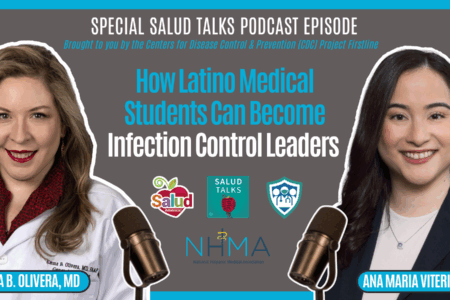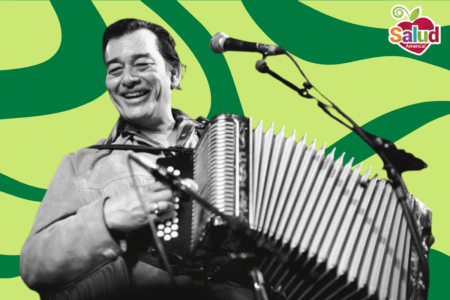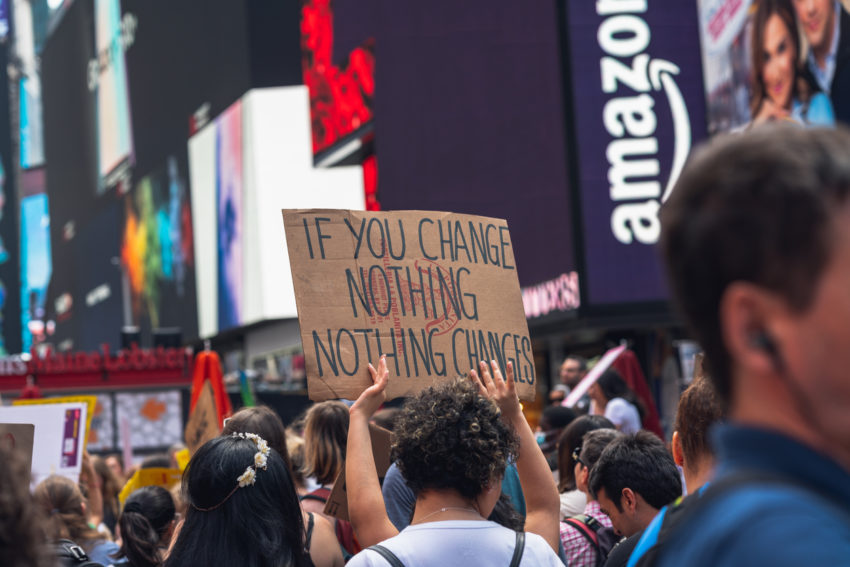
Share On Social!
Since the founding of this country, Latinos, African-Americans, and all people of color have experienced harm at the hands of an unjust system.
With the death of George Floyd at the hands of those meant to protect and serve, millions have taken to the streets to protest systemic racism across the U.S.
Latinos, who are experiencing a rising burden of hate crimes, discrimination, and anti-immigrant sentiment, have joined in the Black Lives Matter cause to advocate for change — not just in African-American neighborhoods, but in all communities of color.
“It’s not just black people being murdered by police. Hispanics are dying, too,” Fernando Garcia, executive director of the Border Network for Human Rights (BNHR), told El Paso news station WWLP 22. “It’s not only one bad apple. The whole system of criminalization and violence against people of color is the pattern. This system criminalizes all people of color who are poor. That is why it’s important to connect.”
Latinos Urge Latinos to Join ‘Black Lives Matter’ Movement
While this movement initially focused on the specific issue of police brutality in the Black community, it opened the door to larger conversations about the issues impacting specific groups based on the color of their skin.
Still, some Latinos who are participating in the ‘Black Lives Matter’ movement feel that certain members of their community aren’t doing enough to urge for change in a system that harms all people of color.
“I just believe that right now a lot of our Latino brothers are being silent with their complacency, and not saying anything,” Marvin Pineda, a protestor in Miami, told the Miami Herald. “Just because I’m a Latino doesn’t mean I don’t stand behind black lives.”
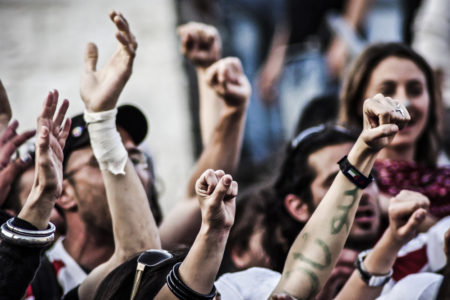 Along with the urge to unite with other disadvantaged groups, those same protestors feel that the Latino community must also address the biases found in their community, according to Andrea Mercado, executive director of the New Florida Majority.
Along with the urge to unite with other disadvantaged groups, those same protestors feel that the Latino community must also address the biases found in their community, according to Andrea Mercado, executive director of the New Florida Majority.
“[This is] not the first time that we see police brutality and there are many Latinos who die at the hands of police or border patrol. But Latinos can also be complicit in violence on black bodies and anti-blackness exists in our communities,” she told the Miami Herald. “Here in Miami-Dade many of our police officers speak Spanish and maybe Latino police officers are responsible for perpetuating violence in black communities.
“So this is an important moment for all of us to stand up in defense of black lives.”
Still, this recent round of protests has garnered more support for the “Black Lives Matter” movement than ever before, according to the Pew Research Center.
“Two-thirds of U.S. adults say they support the movement, with 38% saying they strongly support it,” the group states. “This sentiment is particularly strong among black Americans, although majorities of white (60%), Hispanic (77%) and Asian (75%) Americans express at least some support.”
Injustice Against People of Color Across the Board
While there is a cry for more support, many Latinos have also joined in protests against racism in the U.S.
Moreover, the Latino community is not a homogenized group. There is a vast diversity among this population, which even includes people of African descent.
“These nearly 60 million individuals trace their heritage to Spanish-speaking countries in Latin America and to Spain, each with distinct demographic and economic profiles,” Pew Research Center states. “But as migration patterns from Latin America change, the origins of U.S. Hispanics are beginning to shift.”
Communities of color, including Latinos, have suffered at the hands of police brutality, according to League of United Latin American Citizens (LULAC) leader Domingo Garcia.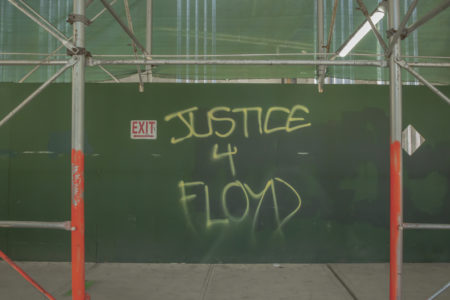
In a recent statement, he shares Santos Rodriguez’s story. In July 1973, police targeted the 12-year-old and his 13-year-old brother in an investigation of vandalism to a vending machine in Dallas.
After pulling the two boys out of their home, one of the officers, Darrell Cain, allegedly used Russian roulette as an interrogation tactic in hopes of gaining a confession. The police shot Santos Rodriguez in the head in the midst of the incident.
Moreover, Latinos and Blacks face higher rates of being pulled over by police and to also have their vehicles searched.
“The pain and sheer injustice that black communities experience day in and day out cannot be ignored any longer. It must stop now,” Garcia said in his statement.
In addition to police brutality, Latinos and other communities of color experience systematic injustice. These include widespread health disparities, racial bias, and a lack of access to opportunity.
“LULAC rises to join in steadfast solidarity with the hundreds of thousands of people across our country demanding fundamental reforms to our law enforcement system,” Garcia said in his statement. “We stand as one with this movement in strong agreement that we must change how law enforcement is carried out in America.”
What Can We Do?
First, see if you have bias.
In the healthcare field, teach cultural competencies and cultivate more doctors of color to help produce better outcomes for Latino patients.
Check out stories of people who are overcoming biases:
- Dr. Rogelio Saenz overcome implicit bias growing up and in his career. He is a respected UT San Antonio researcher using data and demographics to push social justice solutions.
- Dr. Jabraan Pasha created a training workshop to spread awareness of implicit bias in healthcare.
- Kelly Capatosto and the Kirwan Institute are doing significant research and training on implicit bias.
You can also help your city declare racism as a public health crisis.
Download the free Salud America! “Get Your City to Declare Racism a Public Health Crisis Action Pack.” The Action Pack will help you get input from local advocates of color, start a conversation with local leaders, and build local support for a resolution to declare racism a public health issue along with a commitment to take action to change policies and practices.
Explore More:
Increasing RecognitionBy The Numbers
3
Big Excuses
people use to justify discriminatory behavior

